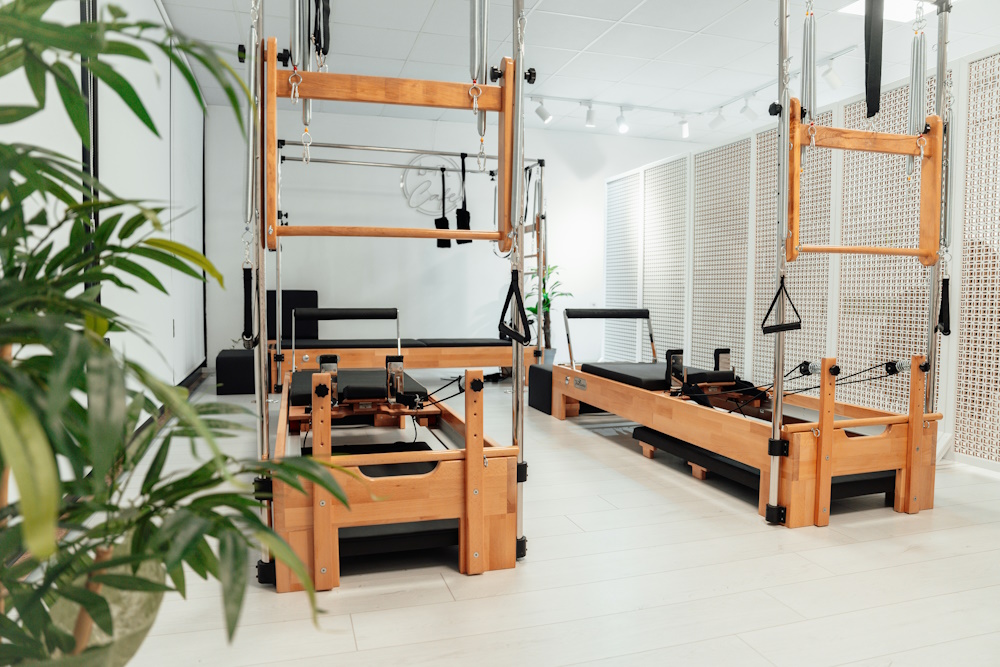Pilates is an increasingly popular form of exercise that focuses on core strength, flexibility, and overall body awareness. As Pilates gains recognition, many individuals, whether beginners or experienced practitioners, have questions about this exercise method. In this guide, we will address some of the most frequently asked questions about Pilates. Whether you’re curious about the ideal frequency of Pilates sessions or the benefits of practicing daily, we’ve got you covered.
How Many Times Are You Supposed to Do Pilates?
The frequency of Pilates sessions can vary depending on your goals, schedule, and fitness level. Here are some general guidelines to help you determine how often you should do Pilates:
1. 2-3 Times a Week: For many individuals, attending Pilates sessions 2-3 times a week can be sufficient to experience improvements in strength, flexibility, and overall fitness.
2. Consistency is Key: Regular, consistent practice is more important than the number of sessions per week. It’s better to commit to a realistic schedule that you can maintain.
3. Combination with Other Activities: If Pilates is part of a broader fitness routine that includes other activities like cardio and strength training, you might do Pilates less frequently, say, once a week, to complement your workouts.
4. Progression: As you advance in your Pilates practice, you may choose to increase the frequency of your sessions to continue challenging your body.
5. Listen to Your Body: It’s essential to listen to your body. If you’re fatigued or experiencing soreness, give your muscles time to recover before the next session.
Can Pilates Be Done Every Day?
While Pilates can be done daily, it’s important to consider your goals and the intensity of your Pilates sessions. Here’s what to keep in mind:
1. Intensity: Not all Pilates sessions are equally intense. Gentle, low-impact mat exercises can typically be done daily, especially if you’re focusing on flexibility and mindfulness.
2. Recovery: If you’re doing more intense or challenging Pilates workouts, it’s advisable to allow your muscles to recover between sessions. This may mean scheduling rest days or incorporating lighter Pilates sessions for recovery.
3. Variety: It’s beneficial to vary your Pilates routine. You can do more intense sessions a few times a week and lighter, restorative sessions on other days.
4. Listen to Your Body: As always, it’s crucial to pay attention to how your body feels. If you experience persistent soreness or discomfort, it’s a sign that your muscles need more time to recover.
What Happens When You Do Pilates Every Day?
If you choose to do Pilates daily, you can expect several potential benefits:
1. Improved Flexibility: Daily Pilates can enhance your flexibility and range of motion, making it easier to perform daily activities and other exercises.
2. Core Strength: Consistent practice can lead to a stronger core, which provides stability and support for your spine and overall posture.
3. Enhanced Mind-Body Connection: Daily Pilates encourages mindfulness and a deeper mind-body connection, promoting relaxation and stress reduction.
4. Muscle Tone: Frequent Pilates can lead to improved muscle tone, especially in the abdomen, buttocks, and thighs.
5. Posture Improvement: Daily practice can contribute to better posture and alignment, reducing the risk of back and neck pain.
6. Cardiovascular Benefits: While not a traditional cardio exercise, daily Pilates can have cardiovascular benefits, especially in more vigorous sessions.
What Makes Pilates So Effective?
Pilates is highly effective due to its unique approach to fitness and well-being:
1. Core Emphasis: Pilates places a strong focus on the core muscles, creating a stable and strong center for movement.
2. Whole-Body Engagement: Pilates exercises engage multiple muscle groups simultaneously, offering a full-body workout.
3. Adaptability: Pilates can be adapted to suit various fitness levels, making it accessible to individuals with different needs and abilities.
4. Mindfulness: Pilates encourages mindfulness and body awareness, fostering a deeper connection between the mind and body.
5. Functional Fitness: Many Pilates exercises are designed to improve functional fitness, making it easier to perform everyday activities with ease.
In summary, the frequency of Pilates sessions can vary depending on individual goals and fitness levels, but 2-3 times a week is a common starting point. While Pilates can be done daily, it’s essential to consider the intensity of your workouts and incorporate variety into your routine. Daily Pilates can lead to improved flexibility, core strength, and enhanced mind-body connection. What makes Pilates so effective is its emphasis on core strength, whole-body engagement, adaptability, mindfulness, and functional fitness. Whether you choose to do Pilates daily or on a different schedule, consistency and mindful practice are key to reaping the benefits of this versatile exercise method.
